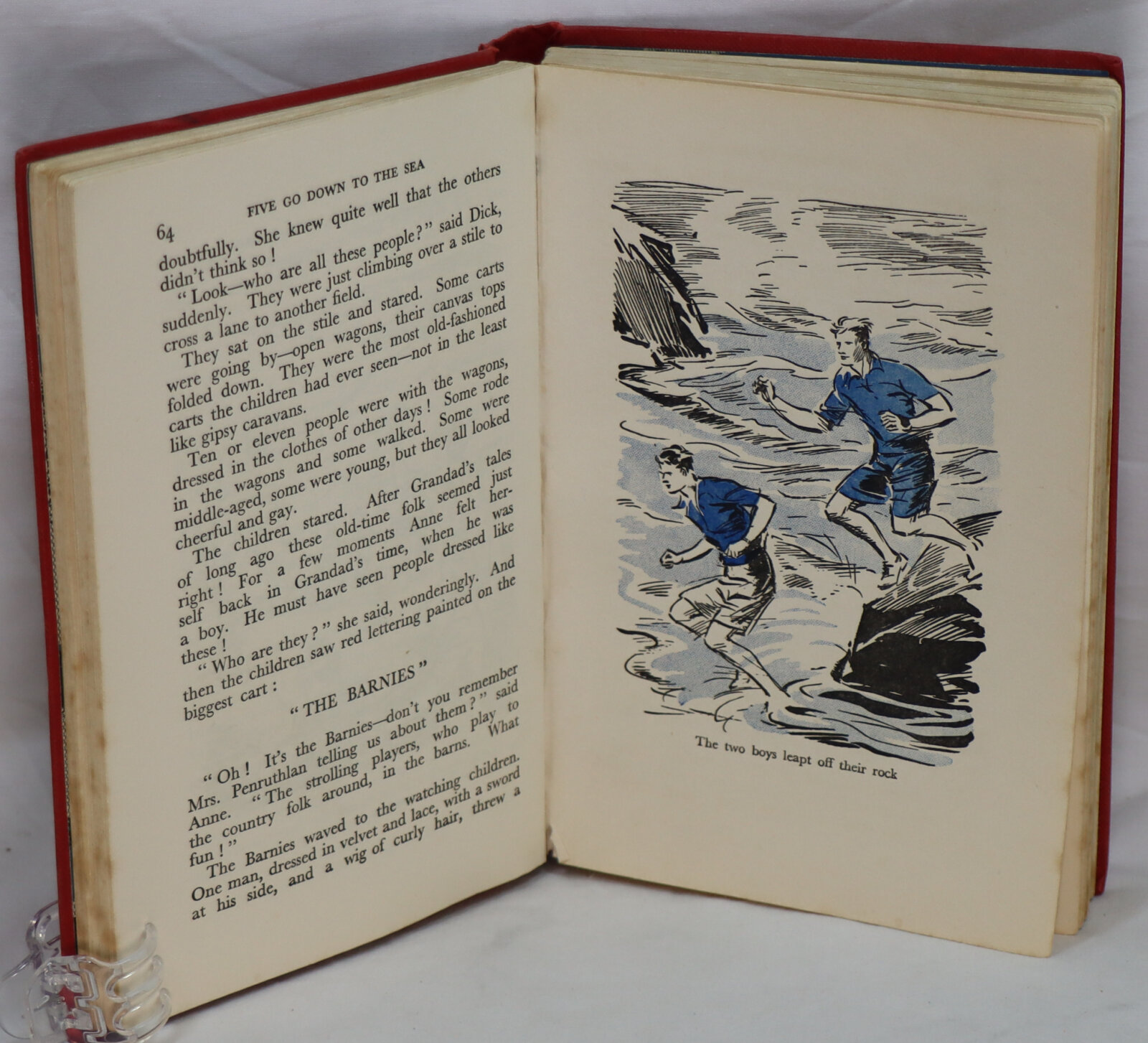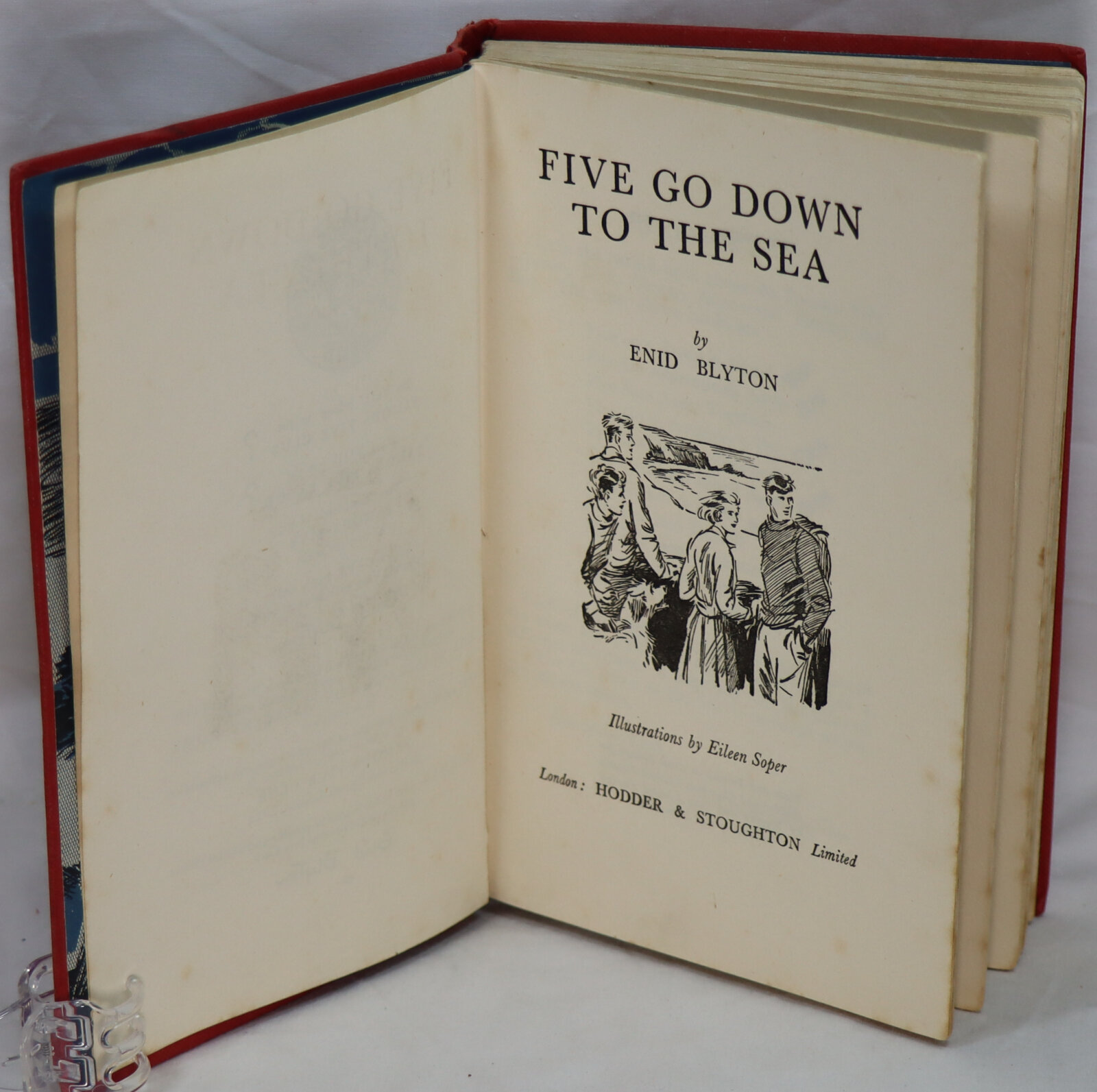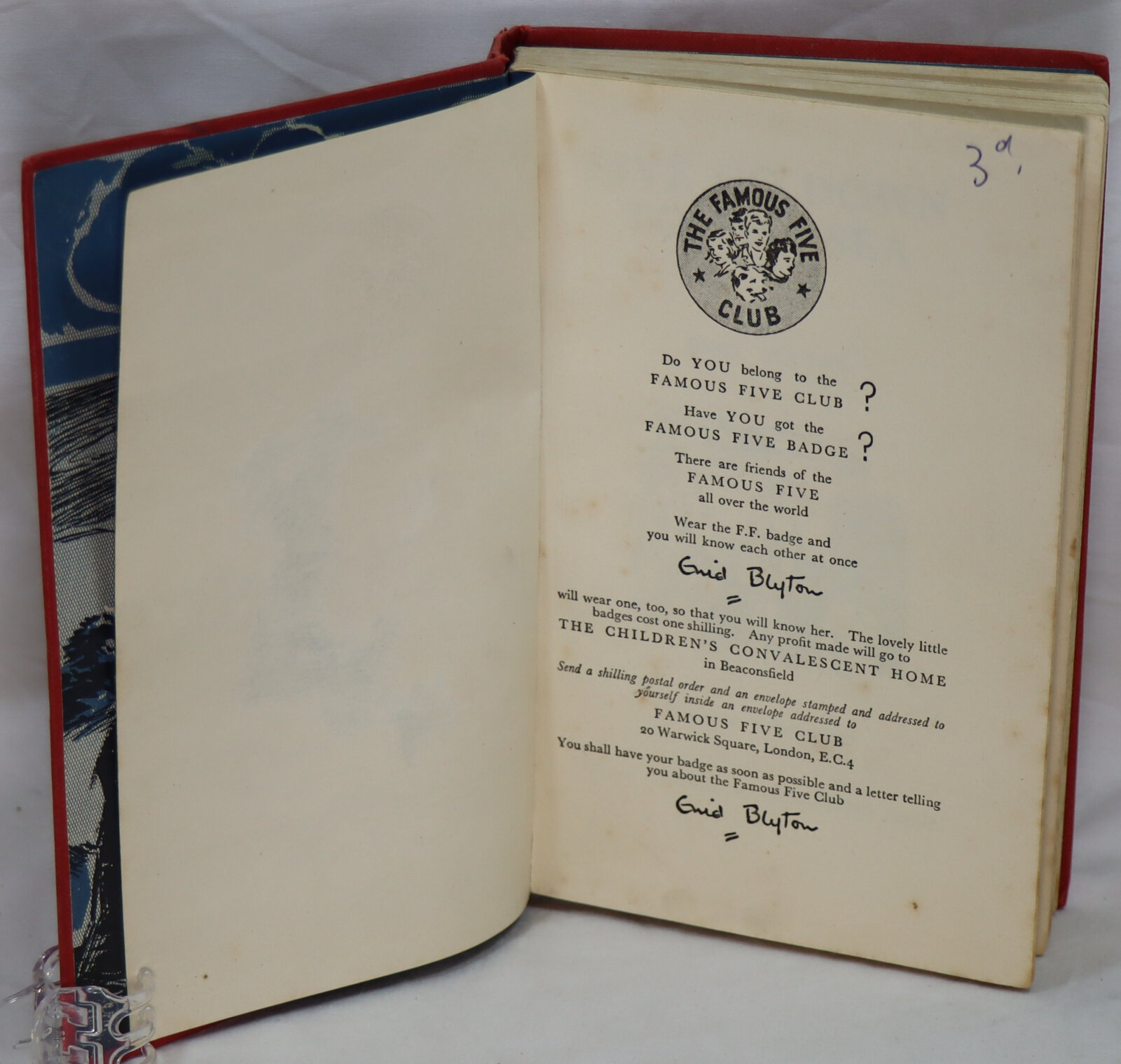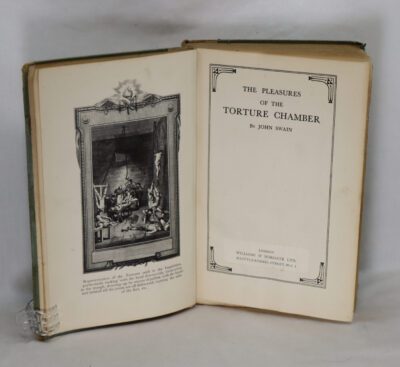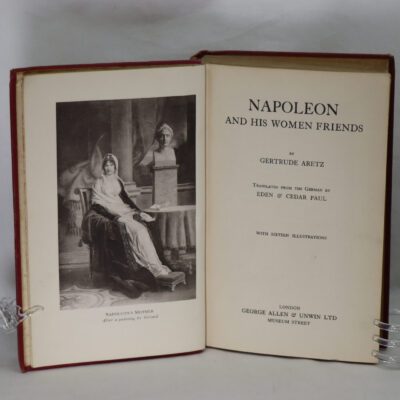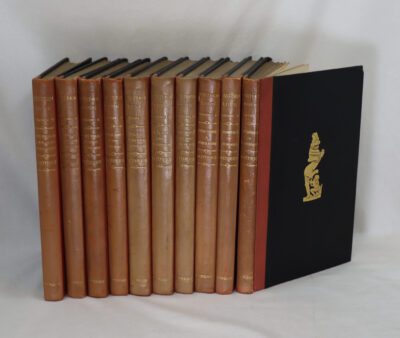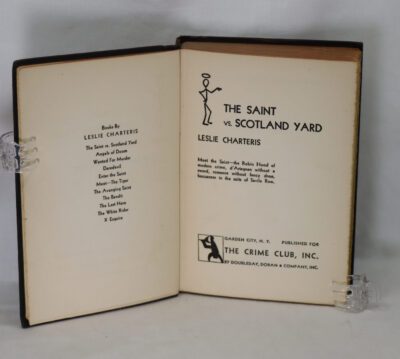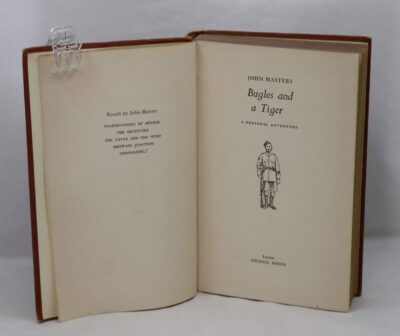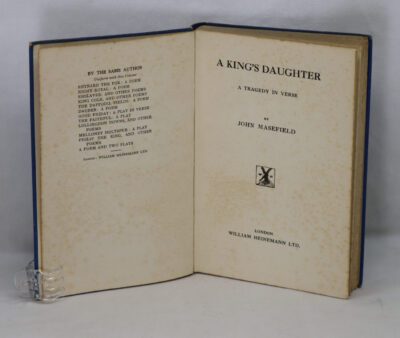Five Go Down To The Sea.
By Enid Blyton
Printed: 1953
Publisher: Hodder & Stoughton. London
Edition: 1st edition
| Dimensions | 13 × 19 × 3 cm |
|---|---|
| Language |
Language: English
Size (cminches): 13 x 19 x 3
Condition: Very good (See explanation of ratings)
Your items
Item information
Description
Red cloth binding with black title on the spine and front board.
-
F.B.A. provides an in-depth photographic presentation of this item to stimulate your feeling and touch. More traditional book descriptions are immediately available.
HB 1st Edition. No Dust jacket. Red cloth boards black titles front + spine. blue & black illustrated end papers. 2 tone + b/w illustrations. 191 pages. 12th story of Famous Five. Condition: Cover wear on top/bottom spine, slight tear of cloth top right seam. Spine sunned. Cloth slight general discolouration/handling age marks. End papers freckled. Some foxing to page margins on some pages. Back of illustrations, a few have markings. Some page corner folds.
Five Go Down To The Sea is the twelfth novel in The Famous Five series by Enid Blyton. It was first published in 1953. Plot: Siblings Julian, Dick and Anne Kirrin, and their cousin Georgina ‘George’ Kirrin and her dog, Timmy, spend a holiday at a coastal farm in Cornwall. There, they are nicely welcomed and hosted by the garrulous Mrs Penruthlan and her enormous husband, whose monosyllabic utterances they find incomprehensible and quite funny. The children encounter a young boy named Yan (Jan), as well as a group of travelling entertainers called the Barnies. The children learn that long ago, villainous locals would shine a light on stormy nights to direct ships onto rocks to wreck them, and the vessels would be smashed and their cargoes washed ashore and stolen. Julian and Dick discover a light is again being shone at night, so the children set out to solve the mystery. They discover the Secret Way, a way used by the old Wreckers, and when they were locked up in a cellar and told that they had come at an ‘awkward time’, Yan comes and helps the Five escape, as he knew the Secret Way. They go back to Mrs. Penruthlan via the Secret Way, in the misbelief that Mr. Penruthlan is in the wrong. When the Five and Yan discover that Mr. Penruthlan is actually with the police and find out that his continual “aahs”, “ooohs” and “ocks” are because he didn’t have his false teeth in, the Five quickly warm up to him. Later in the book after a Barnie show and a good meal at the Penruthlans’, they discover that the ‘Guv’nor’ of the Barnies actually is the exchanger of the goods the Wreckers stole from the wrecked ships. Mr. Penruthlan discovers a white package inside Clopper (a dangerously funny pretend horse that is the highlight of any Barnie show), and in the end, after calling the police, Mr. Penruthlan guffaws and hands Clopper over to Julian and Dick, and wishes them luck with it.
Enid Mary Blyton (11 August 1897 – 28 November 1968) was an English children’s writer, whose books have been worldwide bestsellers since the 1930s, selling more than 600 million copies. Her books are still enormously popular and have been translated into ninety languages. As of June 2019, Blyton held 4th place for the most translated author. She wrote on a wide range of topics, including education, natural history, fantasy, mystery, and biblical narratives. She is best remembered today for her Noddy, Famous Five, Secret Seven, the Five Find-Outers, and Malory Towers books, although she also wrote many others, including the St. Clare’s, The Naughtiest Girl, and The Faraway Tree series.
Her first book, Child Whispers, a 24-page collection of poems, was published in 1922. Following the commercial success of her early novels, such as Adventures of the Wishing-Chair (1937) and The Enchanted Wood (1939), Blyton went on to build a literary empire, sometimes producing fifty books a year in addition to her prolific magazine and newspaper contributions. Her writing was unplanned and sprang largely from her unconscious mind; she typed her stories as events unfolded before her. The sheer volume of her work and the speed with which she produced it led to rumours that Blyton employed an army of ghost writers, a charge she vigorously denied.
Blyton’s work became increasingly controversial among literary critics, teachers, and parents beginning in the 1950s due to the alleged unchallenging nature of her writing and her themes, particularly in the Noddy series. Some libraries and schools banned her works, and from the 1930s until the 1950s, the BBC refused to broadcast her stories because of their perceived lack of literary merit. Her books have been criticised as elitist, sexist, racist, xenophobic, and at odds with the more progressive environment that was emerging in post-World War II Britain, but they have continued to be bestsellers since her death in 1968. She felt she had a responsibility to provide her readers with a strong moral framework, so she encouraged them to support worthy causes. In particular, through the clubs she set up or supported, she encouraged and organised them to raise funds for animal and pediatric charities. The story of Blyton’s life was dramatised in Enid, a BBC television film featuring Helena Bonham Carter in the title role. It was first broadcast in the UK on BBC Four in 2009.
Want to know more about this item?
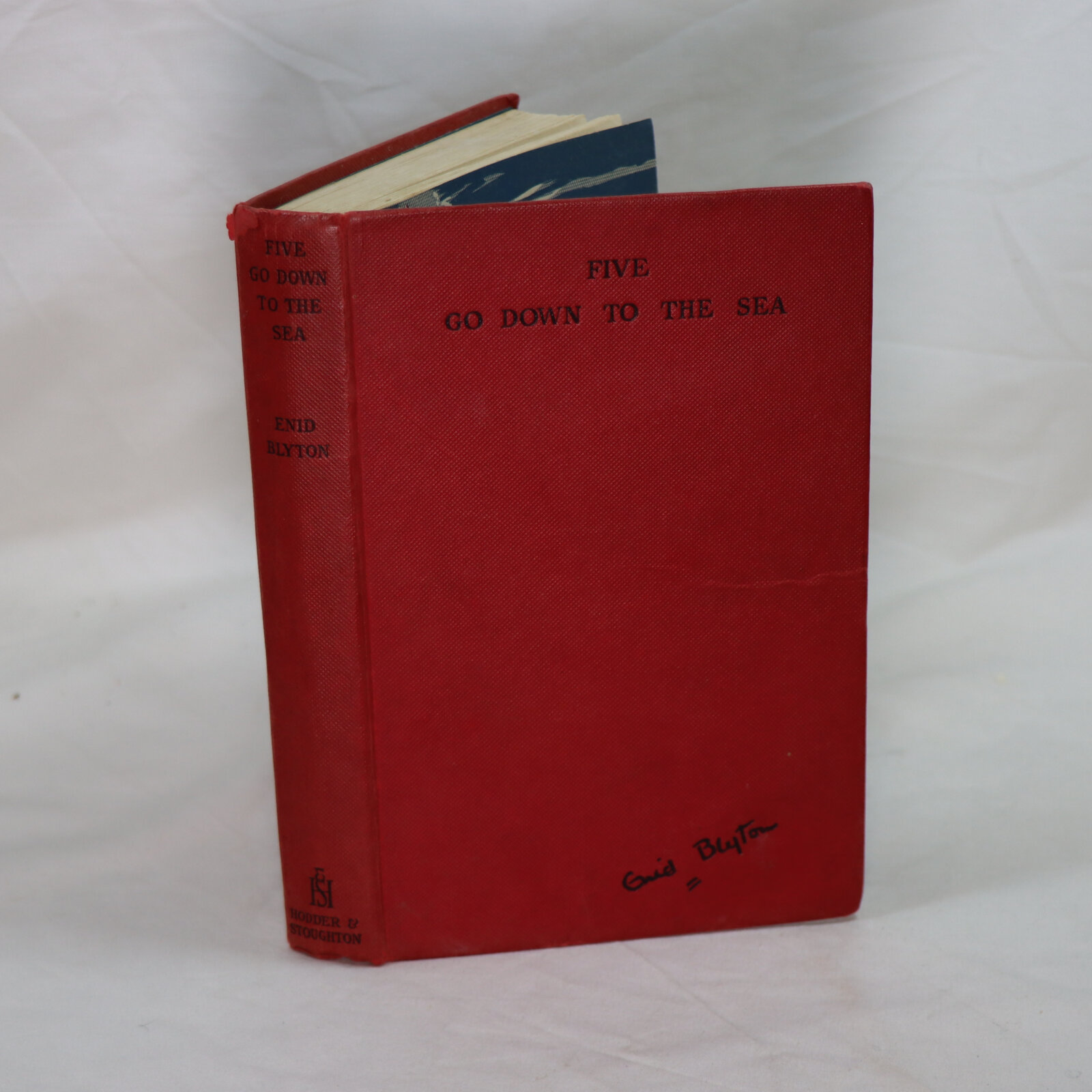
Related products
Share this Page with a friend

